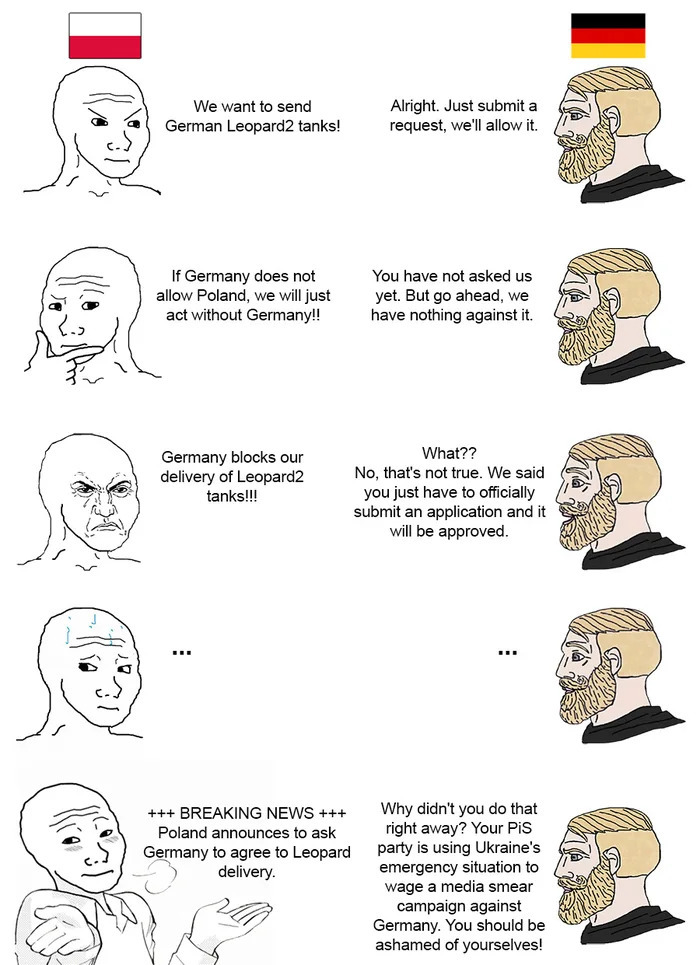History is important, do you agree?
1. When Germany invades a country and this results in the death of over 10% of the population from starvation and execution, people will remember it for a long time. Don't you agree?
2. When Germany refuses to help a smaller country that asks for help, because "they have corruption" and gives morality lessons making their position even worse than it was before, while at the same time, Germany makes a shitload of money with Putin (the uncorrupted!)... people will remember it for a long time. Don't you agree?
And I am talking about Ukraine. Or about Greece.
3. When Germany is telling everyone that they are the supreme moral pacifists and that's the reason they don't spend money for the defense sector of the EU and they don't want to send tanks to Ukraine, but at the same time they make a lot of money from arms exports and they are the largest producer of tanks in Europe... people will question the German motives or call them hypocrites. Don't you agree?
Do the Germans really have to ask "why always me?"
I won't get much into this because it's not the right thread, but since you're getting some stick, I thought why not.
The feelings in Portugal regarding Germany are very similar on the part of many people. Sure, portugal had (and still has) problems with corruption, but the troika, led by merkel, germany and the imf, imposed a brutal austerity on the country, the situation got much worse than it was before. And years later, the conclusion was that most of those austerity measures were a mistake, the imf admitted so, they were not necessary and just made things worse for millions of people already economically vulnerable. People who haven't recovered to this day and had their lives ruined forever. These people exist now, they're not notes in history books.
There are plenty of articles explaining how the austerity imposed in southern european countries was effectively a bailout of german banks. How the euro benefits germany far more than portugal for example. How it was the german government that advised the portuguese government to take some measures they later identified as causes to the request for help on our part. Many things that there's no reason for the average german to care about but that have a deep impact on the people who are on the wrong end of the stick.
Adding to this, the clear xenophobia in some german/dutch/northern european publications at the time (I remember well the magazine covers), implying portuguese only want to party and drink and not work because we are lazy, compared to the hard working northern europeans. This was just the first that come up on google, not even sure if it's german but there were many similar ones:

Probably the average german (or folks not in southern europe) doesn't understand the impact their decisions had in countries like portugal or greece and why that makes it so hard to believe germany actually cares for the common good and their decisions are viewed with suspicion. It's easy to discard this as some basic anti-german historical feeling, when in fact, it's about very recent stuff from which many folks are still suffering.
Anyway, just my 2 cents on this


